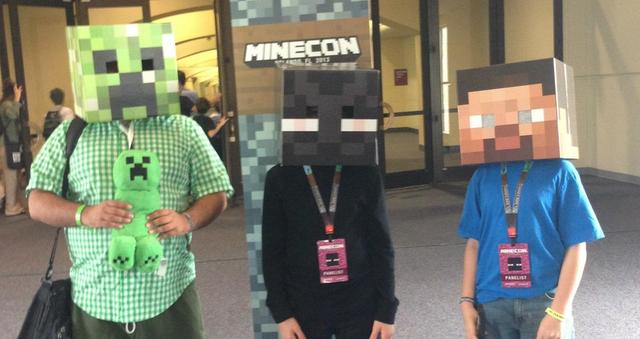If you click on a link and make a purchase we may receive a small commission. Read our editorial policy.
Dune: Prophecy seemingly makes a major change to the canon regarding humanity's greatest enemy, the Thinking Machines
Is Dune: Prophecy is willing to contradict (or at least, cast new light on) an idea that was consistent in both Frank Herbert's Dune novels and Denis Villeneuve's movies?

Popverse's top stories of the day
- Marvel's Kevin Feige talked to John Boyega about who he'd play in the MCU, but "there ain't no room for me," says the Star Wars star
- MEMBERS ONLY: Watch the Lord of the Rings movie reunion panel with Elijah Wood, Sean Astin, Dominic Monaghan, Billy Boyd, John Rhys-Davies, and Andy Serkis from Chicago's C2E2 2025
- Sorry, webheads: Tom Hardy says we weren't as close to that Spidey/Venom movie as was reported
Greetings Popversians, and welcome to Lore Corner! Each week, video producer Ashley V. Robinson and staff writer Grant DeArmitt are going to take you deep into the preexisting lore behind some of pop culture's most exciting adaptations, such as the epic, spacefaring universe of Dune: Prophecy. Happy diving!
Dune: Prophecy feels more relevant to our times with each passing episode - it's a story about greedy elites manipulating a poor populace, about unresolved trauma at the heart of violent actions, and, as you've no doubt noticed by now, about the danger that AI could pose to humanity. They don't say "AI" in Dune: Prophecy, however - they only refer to the Thinking Machines.
What's interesting about the Thinking Machines in Dune: Prophecy isn't just their differences from real-life AI, but the differences between the TV series' usage of them as opposed to the novels and, by extension, to Denis Villeneuve's Dune films. We're going to get into what those differences are in just a moment, but first, you need to understand...
Why were Thinking Machines banned in Dune?

As you know from the very first episode of Dune: Prophecy, humanity is still reeling from a war between themselves and the Thinking Machines, called the Butlerian Jihad in the Dune novels. To make a long story short, this war was the result of humanity's enslavement by an AI called Omnius, which was itself a result of humans creating advanced computers and allowing them to make decisions over their lives.
A band of human rebels broke away from the rule of Omnius and challenged the machines' might in a century-long holy war. This war is a pivotal moment for the history of Dune, as it not only leads to the establishment of the major ruling houses like Atreides and Corrino (both of which we see in Prophecy), it also begins the descent into evil of House Harkonnen.
And for quite a tragic reason, as we've talked about before.
To make a long story very short, the humans overcome their robot overlords, but with millions of lives lost in the process. This leads to a total cultural revolution against Thinking Machines, outlawing androids, computers, even something so simple as a calculator. This predominant opinion humankind has for machines is best exemplified as an edition to the Orange Catholic Bible (a major religious text), which reads:Thou shalt not make a machine in the likeness of a human mind.
For some context, that order is referred to as the Great Commandment in subsequent Dune stories; just so you know how seriously the characters take this idea.
Of course, just because something is banned in the Dune universe doesn't mean that it doesn't happen. In fact, there's one organization in particular that uses methods the rest of the galaxy doesn't in their quest for power, leading us to ask...
Do the Bene Gesserit use Thinking Machines?

OK, here's where things get interesting. In the Dune series of novels, which were started by creator Frank Herbert and then continued by his son Brian and co-author Kevin J. Anderson, the Bene Gesserit have never been seen breaking the Great Commandment. It's an interesting line to draw, especially since they've repeatedly broken other social and moral taboos such as psychological manipulation, the incitement of war, and even cold-blooded murder (as Dune: Prophecy watches are no doubt already familiar with). Yet through it all, it seemed like their commitment against using Thinking Machines was in tact.
Until Dune: Prophecy, episode 3, changed that.
In the second episode of HBO's prequel series, we saw the horrible death of Sister Lila during the ancient practice of The Agony. Or, at least, we thought we did. While Valya Harkonnen chose to consider this an acceptable loss, her sister Tula managed to get Lila's mostly-deceased body away from the eyes of the Bene Gesserit, plugging her into a device that will keep her in a coma, but more importantly, alive. And what kind of device is that?
You guessed it, a hated Thinking Machine.
The implications of this noble but certainly frowned-upon act are still yet to be completely explored as of this writing, and depending on whether or not we get a season 2 of Dune: Prophecy, may not even completely wrap up before the episode 6 finale. However, there's bound to be trouble ahead, as Valya Harkonnen seems to despise the Thinking Machines for what they did to her family, and will not react well if (or, we're guessing, when) she finds out about her sister's betrayal.
Contrary to what longtime Dune fans have thought, the Thinking Machines, may be able to cause humanity strife even now.
Face your fear, and permit it to pass over you and through you with our key guides to all things Dune:
- Dune: Part Two's ending explained,
- All the Dune sequels and TV show prequels that are planned
- Dune watch order
- Which Frank Herbert story Denis Villeneuve believes would make a great Dune: Part Three
- Movies to watch after you've finished Dune
- Sisterhood of Dune ending explained: Understanding the book that Dune: Prophecy was based on
After reading it all, turn to the inner eye to see its path.
Follow Popverse for upcoming event coverage and news
Find out how we conduct our review by reading our review policy
Let Popverse be your tour guide through the wilderness of pop culture
Sign in and let us help you find your new favorite thing.
















Comments
Want to join the discussion? Please activate your account first.
Visit Reedpop ID if you need to resend the confirmation email.